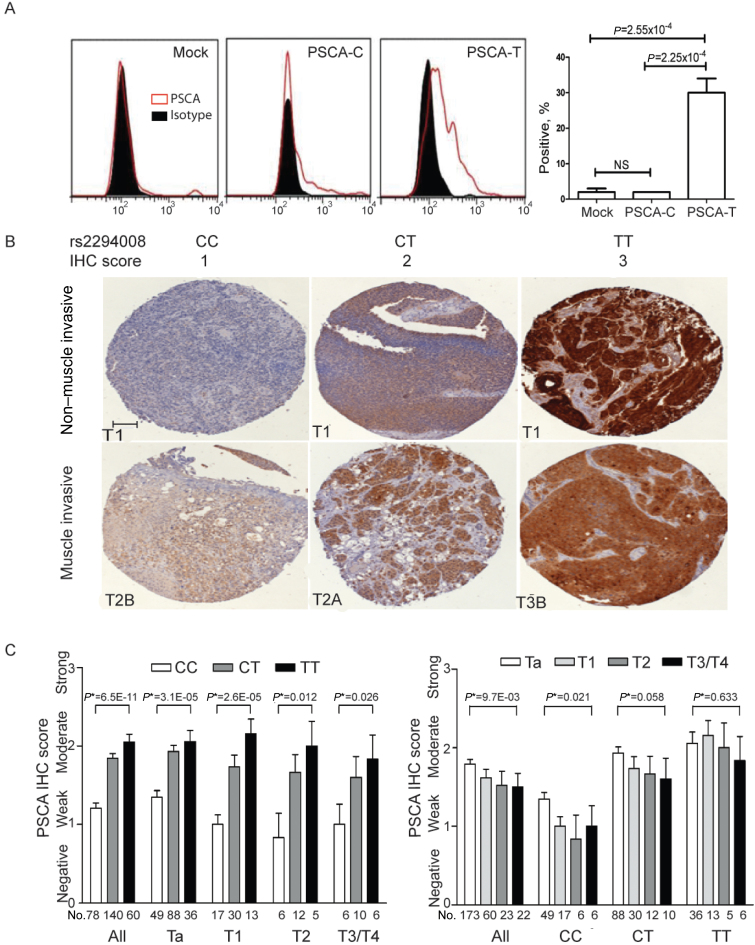Figure 2.
Effect of rs2294008 on prostate stem cell antigen (PSCA) protein expression (see Supplementary Methods, available online). A) Fluorescence activated cell sorting (FACS) analysis of cell surface PSCA expression in HeLa cells. The cells were transiently transfected with an empty vector (mock) or PSCA expression constructs with C and T alleles of rs2294008, encoding PSCA proteins with leader peptides of 11 (C allele) or 20 amino acids (T allele). The staining with anti-PSCA antibody 1G8 (red curves) is compared with isotype control (black area). Percentage of positive cells (y axis) is plotted against fluorescence intensity in logarithmic scale (x axis). The graphic representation of FACS results (right panel) shows mean values of three biological replicates with standard errors of the mean; P values are from a two-sided unpaired t test. Cell surface PSCA expression is statistically significantly increased in cells transfected with an expression construct carrying the risk T allele of rs2294008 compared with the construct with a nonrisk C allele of rs2294008 and mock control, which also shows negligible endogenous level of PSCA expression in HeLa cells. NS = not statistically significant. B) Immunohistochemistry (IHC) analysis of PSCA expression using bladder tumor tissue microarrays. Representative images are from groups of samples stratified by rs2294008 genotypes (CC, CT, TT) and tumor stages—non-muscle-invasive tumors (stages Ta and T1) and muscle-invasive tumors (stages T2–T4). PSCA expression was detected with 1G8 anti-PSCA monoclonal antibody (brown staining) and scored as 0 (negative), 1 (weak), 2 (moderate), and 3 (strong), based on overall intensity. Scale bar corresponds to 0.1mm, and all images are presented in the same scale. C) Association between PSCA IHC scores and rs2294008 genotypes, stratified by tumor stage (left panel) or, for tumor stages, stratified by rs2294008 genotypes (right panel). PSCA IHC scores are shown as mean values with standard errors; two-sided P* values were estimated from multivariable linear models, assuming additive genetic effect of rs2294008, adjusted for age, sex, study site, and smoking status (ever or never). Single nucleotide polymorphism rs2294008 was found to be the strongest predictor for PSCA expression, regardless of all other factors tested, such as age, sex, smoking status, and tumor grade and stage.

